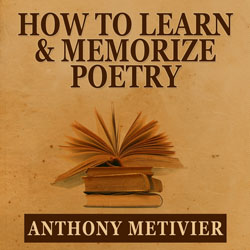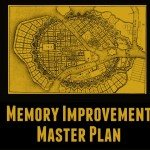Sat, 31 May 2014
Let’s face it… We’ve all suffered from nightmares. Sometimes they come out of nowhere, sometimes they’re deeply connected with a rough passage through life. And yet… Since first starting with dream recall, I’ve never had what I’d call a “nightmare.” My childhood was littered with them, however. I think these terrible nocturnal experiences were tied to all the surgeries I needed thanks to a ruptured eardrum. As a result of this problem, I needed tubes. These were taken in and removed repeatedly over several years … But I’m not going to fill your ears with these tales of nighttime woe or the images they involved. I don’t even particularly want to hear descriptions of your nightmares. I’m not a dream therapist, after all. What does interest me, however, is what you’ve done to deal with your dreams when they haven’t been nice. Do you just let it go and get on with your day? Do you carry a feeling with that takes time to subside? Do you tell a loved one or friend? Ideally, if you’re practicing dream recall, you’ll write it down. It’s part of creating that nighttime portrait I was telling you about. It’s like creating a graph that lets you see spikes of activity over time. Form becomes as important as content, especially when you hit an earthquake or volcano. You can relive it in the safety of paper as you externalize and study your nighttime seismograph. And over time, with a dedicated dream recall practice, you can bring balance to your nighttime life. The other thing I would suggest to speed up the process of healing nightmares is to place your disturbing dreams in Memory Palaces. Yes, I know that Memory Palaces are precious things. You almost don’t want to get them involved. But the fact of the matter is that Memory Palaces can serve as neutral territory. Just as we use Memory Palaces to enliven the material we want to remember using vibrant color and intensified action, we can drain our negative dreams of the intensity that terrifies us by placing those fears in a familiar location we’ve reconstructed in our minds. Try it sometime. When you wake up from an unsettling dream, place as many details as you can remember into one of your Memory Palaces. Or write them down as you would normally to get the fullest possible recording of the dream on paper and then transport the dream into a Memory Palace. (If you’re new to Magnetic Memory Dream Recall, then writing them down first before doing Memory Palace work is probably the better option). Either way, once you’re in the Memory Palace with the dream, or looking at it from whatever way that you look at dreams you’ve placed there, before you do anything else, drain the dream of colour until it’s black and white. You may even want to make it like an old scratchy movie, which will allow you to eliminate and reduce the sound. This is another powerful strategy for neutralizing a nightmare. For especially bad dreams, you can speed them up and add sound, as in a comedic movie where everything speeds up and everybody sounds like Mickey Mouse. Make it so that you have no choice but to laugh at the dream. To that younger version of myself, who from the ages four to ten had intense nightmare that caused so much disturbance throughout the day that it could not help but to invite new nightmares the next night, I would advise myself to eliminate the color from the dream and then using the powerful safety of a Memory Palace, wrap it up like newspaper and throw it out the door like Sigourney Weaver ejected the monster in Alien out into space. I ain’t saying that this will be easy. It could take some deliberate practice with dream recall. And definitely some familiarity with Memory Palaces. But if you’re interested, and for some reason not already on board the Magnetic Dream Recall nightmare-healing journey (potentially, depending on your sincerity of effort), the train departs from here: The post Can A Memory Palace Heal Nightmares? appeared first on Magnetic Memory Method - How to Memorize With A Memory Palace.
Direct download: Can_a_Memory_Palace_Heal_Nightmares_Magnetic_Memory_Method_Podcast.mp3
Category:Memory Method Tips -- posted at: 1:31pm EDT |
Mon, 26 May 2014
Tune in now and you’ll learn: * The best ways to use index cards to create a “skeleton” that you can use again and again for other writings or to memorize material for a public presentation. * Why index cards are better than Evernote and Anki. * How to make writing a dissertation as interesting as writing a screenplay for television or the movies. * How to use the floor of your apartment to organize an entire dissertation into multiple chapters so that you can present the evidence in the best possible order simply by sitting and writing. * The best conditions to create and maintain a writing space for composing your writing. * The need for syncing to Dropbox or some similar service while you’re writing. * How to avoid the need to re-read your dissertation before the defense. * How to know almost exactly where in your dissertation you’ve made various points. * The best way to keep your research material “mobile.” * How to apply the techniques in this podcast and “How to Memorize a Textbook” to memorize and write blog posts about gardening, cooking or whatever area of interest you might want to write or present about. * … and much, much more. I also invite you to an upcoming webinar titled Memory Secrets of an A+ Student, which I highly encourage you to sign-up for and attend. I’ll be talking more about using memory techniques as part of scholastic success with an eye to making sure that the techniques can also be used by everyone. As a student, as you may know, I was pretty foggy in my mind most of the time for various reasons I’ve talked about before. Memory skills and the index card research technique that I talk about in the podcast were key to my success and although paper and pen seem like ancient technology to students today, I still highly recommend using them. Handwriting uses, rather obviously, the hand, and there are good, scientifically grounded reasons that explain why that handwriting creates higher levels of cognition. Couple this with a Memory Palace, location-based memory technique and you’ll quickly experience much larger results than typing. It’s not entirely clear to me why typing differs from handwriting, but the effects are plain and the practical benefits evident. As I talk about in this episode, it’s easy to lose or accidentally delete a computer file, but so long as you have an ordered stack of index cards, you know the order of points you talked about in the writing and can re-write it relatively easily. You may even be able to dictate directly from the index cards, which is a point that I neglected to address in the podcast itself. If you have dictation software and are able to verbally respond to index cards off-the-cuff, then the writing processes can go even more quickly for you, making your job simply one of editing. If you’ve enjoyed this episode of the Magnetic Memory Method Podcast, please add a comment here, subscribe on iTunes or Stitcher and feel free to share it with anyone you know who is currently writing a dissertation or writing in general. Talk soon! Sincerely,
Anthony Metivier is the founder of the Magnetic Memory Method, a systematic, 21st Century approach to memorizing foreign language vocabulary, dreams, names, music, poetry and much more in ways that are easy, elegant, effective and fun. The post How To Write A Dissertation (Or Essay) appeared first on Magnetic Memory Method - How to Memorize With A Memory Palace.
Direct download: How_to_Write_a_Dissertation_Magnetic_Memory_Method_Podcast.mp3
Category:Memory Method Tips -- posted at: 7:12pm EDT |
Tue, 20 May 2014
In this episode of the Magnetic Memory Method Podcast, I talk about a strange book called How to Memorize the Bible Quick and Easy in 5 Simple Steps that claims mnemonics are a form of witchcraft! In addition to debunking this claim, in today’s episode you’ll learn: * The real reason I wrote How to Learn and Memorize the Psalms of the Bible. * Why I have been asked to help people stop memorizing the scripture. * Why actually reading scripture may be more important than memorizing them. * How the laws of physics, force and velocity relate to the universal principles of mnemonics and Memory Palace construction. * Why you need to take dedicated memory training so that you can learn to build effective Memory Palaces, understand journeys and asssociative-imagery and learn Recall Rehearsal. * Why memorizing textbooks verbatim is not necessarily the best goal and an invitation to learn how to do it the right way. * Why books that mix mnemonics and theology are can be dangerous for your health (and what to read instead). * Why asking God to help you memorize the Bible will probably involve a dedicated memory technique (possibly even the Magnetic Memory Method). * Why belief (not faith) can be a mnemonic strategy and how to properly place it. * Why memorizing only the material that leaps out at you might be good for “bibliomancy” when memorizing a textbook, but probably won’t help you when trying to memorize scripture verbatim. * Why mnemonics are most certainly not blasphemous. * Why mnemonics bears absolutely no relationship to witchcraft (because witchcraft doesn’t exist). * Why memorizing long strings of numbers is absolutely fantastic for building your memory skills. * The relationship between weight-lifting and memory skills. * Why rote-learning is the “blunt force hammer” of learning. * The benefits of reading books twice before you memorize them (either in whole or in part). * The mysteries of “chunking” and “rechunking.” * Why the future of the human species is going to be better than its past. * Why the words “atheist” and “agnostic” are ridiculous words (but not ones that should be forgotten). * Why Memory Palaces and location-based memory techniques are the best of all mnemonic methods. * Exactly how to ensure that you never forget where you left your keys again. * How to find more Memory Palaces than you can shake a Magnetic stick at. * Why your memory has no saturation point whatsoever. * How to leverage the natural ability of the mind to memorize all the information you could ever want. * … and much, much more! If you’re interested here’s the book talked about in the podcast:
Here’s my book about how to memorize the psalms:
And this is the video course I mentioned that goes even deeper into memorizing verse in general. Use coupon code “nonstrology” for a special introductory discount on your one time investment in this revolutionary memory training. It comes with a 30-day Magnetic Decision Guarantee.
+Anthony Metivier is the founder of the Magnetic Memory Method, a systematic, 21st Century approach to memorizing foreign language vocabulary, dreams, names, music, poetry and much more in ways that are easy, elegant, effective and fun. The post Of Witchcraft, Nonstrology And Mnemonics appeared first on Magnetic Memory Method - How to Memorize With A Memory Palace.
Direct download: Of_Witchcraft_Nonstrology_and_Mnemonics_Magnetic_Memory_Method_Podcast.mp3
Category:Podcast -- posted at: 2:23pm EDT |
Fri, 16 May 2014
* The important connection between space in your Memory Palaces and where you use your Memory Palaces. * The amazing value of having a solid routine so that you can see the compound effect of the work you’re putting into your memory (developing your memory is more like play than “work”, so don’t let that nasty word put you off!) * Why you need to start simple each and every time you memorize something so that you can sail into the more complicated matters with ease (this one tip alone is worth at least a million Magnetic dollars). * How to leverage the power of mistakes and turn them into the most powerful memorizing experiences you could ever wish for. * When to ditch parts of your Memory Palace so that you can memorize even more material and not get stuck in a ditch. * The most important rule in the world for getting past the whining and crying of frustration so that you are always calm and relaxed when working on memorizing material. * The productivity secrets of specialization and why you need one. * How to train your brain using rewards (I used to think this was corny too until I finally gave it a try … it works!) * … and a whole lot more! Listen to this episode of the Magnetic Memory Method Podcast and be amazed by what you can achieve using the natural abilities of your mind. +Anthony Metivier is the founder of the Magnetic Memory Method, a systematic, 21st Century approach to memorizing foreign language vocabulary, dreams, names, music, poetry and much more in ways that are easy, elegant, effective and fun. The post Your Free Memory Improvement Master Plan appeared first on Magnetic Memory Method - How to Memorize With A Memory Palace.
Direct download: Your_Free_Memory_Improvement_Master_Plan.mp3
Category:Memory Method Tips -- posted at: 11:39am EDT |
Thu, 8 May 2014
* Why mnemonics is neither cheating nor a cheap trick. * How memory skills can help you deal with the massive amounts information on the Internet. * Why Timothy hates Qwerty keyboards and how mnemonics might have a competitor when it comes to learning a new keyboard system. * Timothy’s history with graduated intervals (and what graduated intervals are). * The difference between learning and association and why the latter may be a more powerful way to think about education. * The best way to learn and memorize song lyrics. * Why the mind “likes” to remember music and how to use music to memorize foreign language vocabulary. * How to get a “compound effect” when using music to memorize information and information to memorize music. * Why everyone can be a “grand” master of memory (even if you have to take the “grand” part away). * How to be proactive about the things you naturally remember so that you can link them to pieces of information that your brain doesn’t latch onto so easily. * Why you should engage in all your activities based on results, rather than on the time you spend. * Why mnemonics allow you to spend more time reading and thinking instead of losing time on rote learning. * Why you should pay attention to stressed syllables when memorizing foreign language vocabulary so that you mind can take care of the rest (kind of like letting it “fill in the blanks” so that you don’t have to work so hard). * Timothy’s simple, three-part solution to the problem of teaching mnemonics through examples and how to find the right “starting point” so you can smoothly sail through the seas of mnemonics and other memory skills. * How to get the “bigger picture” when memorizing textbook material so you don’t have to worry about memorizing every little detail verbatim. * The best foods to eat so that your mind is clear and your memory is ready for mnemonic activity at the highest possible level. * Why Memory Palaces can be used by everyone, no matter how rich or poor your are and no matter where in the world you live. * Why both the deep history and the recent past of memory techniques are an important part of your journey into enhanced memory abilities. * Why memory tactics fell out of favor in the 18th century, but are coming back to help us all as part of a Mnemonic Renaissance thanks to the Internet. * Why education and fun can be one and the same thing so that people of any age can enjoy the learning process and use the natural abilities of their minds to enjoy their lives and their minds at a very high level. * Why you are unlikely to drop your brain on the sidewalk, but should be prepared with memory skills for the day that your smart phone crashes. * How you can use memory skills not just to memorize a bunch of facts, but connect those facts to a larger picture of knowledge so that you develop critical thinking skills as part of your memory improvement project. * Why you need to be willing to test out new mnemonic approaches and test them to find out which ones work best for you. * Exactly what to do if you’re not a visual person and still want to use mnemonics by “segmenting” pictures. This is an exciting interview packed with ideas that you can use immediately to start using your mind with greater productivity starting today. If you’re interested in using advanced memory skills to learn Spanish, then I highly recommend checking out Timothy’s free Accelerated Spanish Webinar. And check out this additional interview with Timothy here on the Magnetic Memory Method Podcast: Mnemonics, Language Learning And Virtual Memory Palaces In Discussion With Timothy Moser The post Timothy Moser Talks About Memory Skills and Productivity appeared first on Magnetic Memory Method - How to Memorize With A Memory Palace.
Direct download: Timothy_Moser_Talks_About_Memory_Skills_And_Productivity.mp3
Category:Podcast -- posted at: 3:53pm EDT |
The Magnetic Memory Method Podcast

Categories
generalMemory Improvement Tools
Memory Method Tips
Brain Exercises for Memory Improvement
Memory Improvement Case Studies
Podcast
Guest Post
Memory Palace Tactics
Practical Memory Techniques
Uncategorized
Improve Memory Q&A
Archives
AprilMarch
February
January
December
November
October
September
August
July
June
May
April
March
February
January
December
November
October
September
August
July
June
May
April
March
February
January
December
November
October
September
August
July
June
May
April
March
February
January
December
November
October
September
August
July
June
May
April
March
February
January
December
November
October
September
August
June
May
April
March
February
January
December
November
October
September
August
July
June
May
April
March
February
January
December
November
October
September
August
July
June
May
April
March
February
January
December
November
October
September
August
July
June
May
April
March
February
January
December
November
October
September
August
July
June
May
April
March
February
January
December
November
October
September
August
July
June
May
April
March
February
January
December
November
September
| S | M | T | W | T | F | S |
|---|---|---|---|---|---|---|
| 1 | 2 | 3 | ||||
| 4 | 5 | 6 | 7 | 8 | 9 | 10 |
| 11 | 12 | 13 | 14 | 15 | 16 | 17 |
| 18 | 19 | 20 | 21 | 22 | 23 | 24 |
| 25 | 26 | 27 | 28 | 29 | 30 | 31 |
Syndication



 In this episode of the Magnetic Memory Method Podcast, I follow up on the “
In this episode of the Magnetic Memory Method Podcast, I follow up on the “



 In this episode of the Magnetic Memory Method Podcast, you’ll learn 8 simple and effective strategies that you can apply to your dedicated memorization efforts when you using mnemonics to study, memorize poetry, foreign language vocabulary or even a deck of cards. Listen now to learn:
In this episode of the Magnetic Memory Method Podcast, you’ll learn 8 simple and effective strategies that you can apply to your dedicated memorization efforts when you using mnemonics to study, memorize poetry, foreign language vocabulary or even a deck of cards. Listen now to learn: In this episode of the Magnetic Memory Method Podcast, you’ll hear from Timothy Moser, the man behind
In this episode of the Magnetic Memory Method Podcast, you’ll hear from Timothy Moser, the man behind 